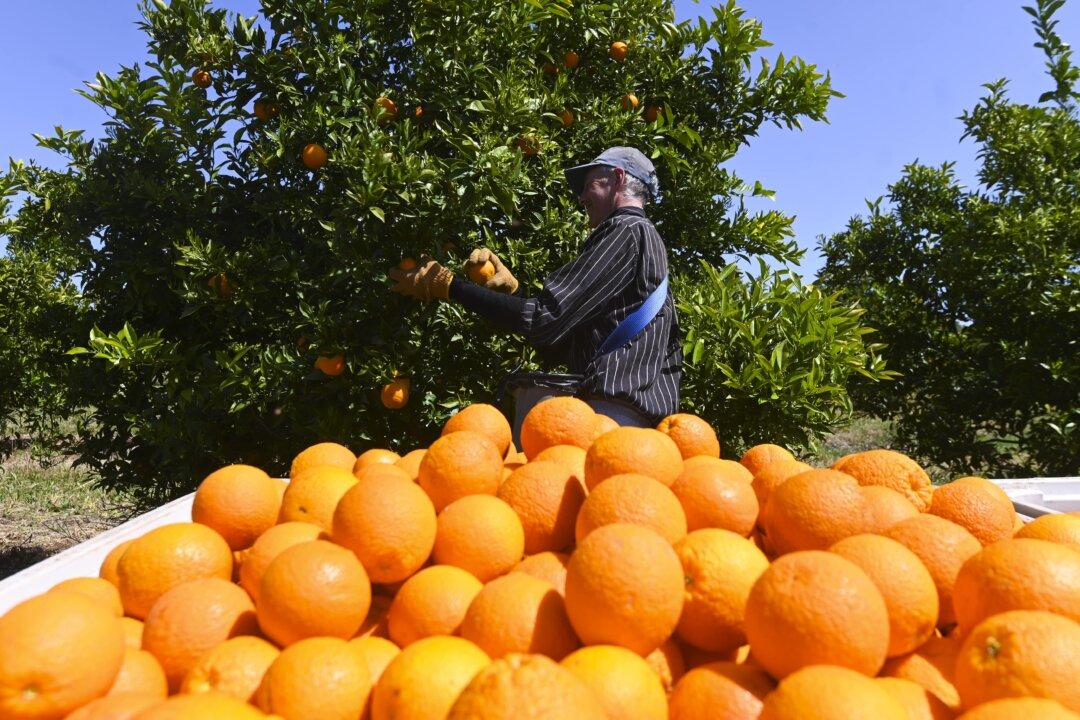The Australian Worker’s Union (AWU) will appear before the Fair Work Commission today to push for a guaranteed minimum wage for fruit and vegetable pickers.
At present, the minimum rate of pay for casual farm work is $25.41 per hour (US$19.02). However, the AWU says farms can “dodge” the minimum rate through piece-rate arrangements, where workers are paid depending on the quantity of fruit or vegetables harvested.





